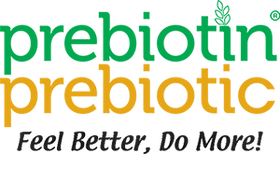Research and Clinical Studies Using Prebiotin
“Over the past 10 years, considerable evidence has emerged from animal studies to suggest that the gut microbiome has significant effects on brain development and behavior, with bidirectional communication between the enteric nervous system, gut, and the central nervous system. Evidence indicates that improving short chain fatty acid production related to a healthy composition of gut microbiota may be the key to improving inflammation in the body and potentially the brain.” - Dr. Deanna L. Kelly, PharmD, BCPP, Professor of Psychiatry, University of Maryland School of Medicine
“We are excited about this opportunity to examine the effects of a prebiotic on outcomes connecting the brain to the gut in people with schizophrenia,”
- Deanna L. Kelly, Pharm.D, BCPP, Professor of Psychiatry and Director of the Treatment Research Program at the MPRC, UMB
Prebiotic Treatment Increases Serum Butyrate in People with Schizophrenia: Results of an Open-Label Inpatient Pilot Clinical Trial
University of Maryland - “Prebiotic Treatment in People with Schizophrenia,” – human trial.
Emerging research suggests disruptions of the gut microbiota may affect brain development and function and play a role in the development of psychiatric disorders (Quigley, 2017). Butyrate is one of the three major short chain fatty acids (SCFA) that are produced by bacterial fermentation nd plays a critical role in maintaining the integrity of the gut/blood barrier and in several aspects of brain development, including cognitive function (Szeligowski, Yun, Lennox and Burnet, 2020) .
People with schizophrenia are characterized by marked cognitive impairments and currently no known treatments are available to improve cognitive performance (Mihaljević-Peleš et al., 2019). There is growing evidence linking the gut microbiota to schizophrenia and underlying pathophysiology of the illness (Golofast and Vales, 2020). Here we present the encouraging results of a small pilot study where we examined the effects of oligosaccharide-enriched inulin treatment (OEI), a prebiotic that is taken up by the bacteria in the colon to produce butyrate, on psychiatric symptoms and cognitive changes.
In conclusion and based on preliminary results, OEI treatment has a promising therapeutic potential. Future studies should replicate these findings and OEI may be an effective treatment for cognitive dysfunction. We are currently conducting an NIH funded clinical trial to examine the effects of OEI on butyrate and test this target for improving cognition in schizophrenia. (NCT03617783).

“A fiber supplement (Prebiotin) altered gut microbiome composition, and significantly lowered stress.” - Dr. Leigh Greathouse, Baylor College of Medicine
Project Title: “A fiber intervention to prevent weight gain and reduce stress levels for physicians in training.” Dr. LesLee Funderburk with Dr. Leigh Greathouse
Discussion: In this study we investigated the effects of a 12-week dietary prebiotic fiber intervention or placebo in 11 healthy male and female physicians in residency. The overall results of this small pilot study indicated that while no effects on any of the clinical measures of body composition or metabolic health were observed, there was a modest effect of the prebiotic fiber intervention on the gut microbiome with a significant effect on perceived stress levels. The data suggest that dietary prebiotic interventions reduce perceived stress levels among physicians, possibly through modulation of the gut microbiome.
Conclusion: In the present 12-week study, we demonstrated that in normal weight, healthy physicians in residency, a fiber supplement (Prebiotin) altered gut microbiome composition, and significantly lowered stress. These are encouraging findings, especially in this group of individuals known to experience high stress levels during training. These findings suggest that prebiotic dietary fiber may be a promising supplement to utilize long-term to support a healthy gut microbiome, ameliorate stress levels and in turn may prevent weight gain and development of metabolic disease. Future studies, however, should investigate long-term effects of fiber supplementation on metabolic function and stress in both healthy individuals and those with pre-existing metabolic dysfunction.
- Article under review currently (journal #2) at Current Developments in Nutrition.
- Department of Nutrition, Baylor University, Waco, USA; Leigh_Greathouse@baylor.edu; LesLee_Funderburk@baylor.edu

“It is exciting to be working with a team of outstanding, world renowned investigators to identify the most effective treatment for one of the most vulnerable patient populations that we know of,” Dominic Raj, M.D., director of the division of nephrology and professor of medicine at the George Washington University (GW) School of Medicine and Health Sciences
National Institutes of Health (NIH) – The NIH has invested $6.5 million in two human trials currently underway to reduce inflammation in patients with end stage renal disease. (View our press release on the most recent study.) This study is headed up by two consortiums made up of eight university medical centers, along with the National Institute of Diabetes and Digestive and Kidney Diseases (NIDDK).
For more information please visit our blog Successful Use of Prebiotin® Prebiotic Fiber in NIH/NIDDK Study to Reduce Inflammation in Kidney Patients.
The Microbiome and p-inulin in Hemodialysis: A Feasibility Study
Background and objectives: The intestinal microbiome is an appealing target for interventions in end-stage kidney disease (ESKD) because of its likely contribution to uremic toxicity. Before conducting clinical trials of microbiome-altering treatments, it is necessary to understand the intra-and inter-patient variability in the composition and function of the gut microbiome in patients with ESKD.
Conclusion: The intra-person stability of the gut microbiome under no-treatment conditions, the tolerability of p-inulin (Prebiotin™) the signals of increased diversity of the microbiome with p-inulin treatment, and the willingness of participants to provide stool samples all support the feasibility of a larger trial to investigate interventions targeting the gut microbiome in patients with ESKD.
HDNT is a collaborative study group involving the following institutions and principal investigators: the Harvard Brigham and Women's Hospital (D. Charytan), George Washington University (D. Raj), University of Washington (J. Himmelfarb), Vanderbilt University (T.A. Ikizler); Data Coordinating Center: University of Pennsylvania (L. Dember, J.R. Landis); Steering Committee Chair: (A. Kliger), Yale University. The study is funded by cooperative agreements from the NIDDK.

“We finished the prebiotic study in ulcerative colitis patients. We thought that you might be excited to see the preliminary data. The prebiotics (Prebiotin®) was associated with significant increase in the fecal calprotectin, as well as patients who relapsed while being on Product A (Prebiotin®) showed milder disease. Product A also induced a significant increase in butyrate production.” Rosica Valcheva, PhD from The Center of Excellence for Gastrointestinal Inflammation and Immunity Research, Department of Medicine, University of Alberta
Ulcerative Colitis Relapse Prevention by Prebiotics
Dr. Levinus Dieleman, University of Alberta
Ulcerative colitis (UC) is a relapsing chronic intestinal inflammation with no existing cure, that affects over 300 per 100.000 Canadians, the highest prevalence in the world. The standard drug therapies are expensive and potentially toxic, and mostly directed against the chronic inflammatory process. UC is the result of a dysbiosis between disease-inducing and protective intestinal bacteria in a genetically susceptible host. Non-digestible dietary carbohydrates (NDC) stimulate the growth of protective endogenous intestinal bacteria which ferment them into short-chain fatty acids (SCFA), some of the latter with natural anti-inflammatory properties, and are called prebiotics. The investigator was the first to report that oral intake of NDC, the dietary β-fructans inulin plus fructo-oligosaccharides (FOS), reduced colitis in a genetically-induced rat colitis model. Both inulin and FOS reduced colitis.

Other Funded Studies
National Kidney Foundation – The National Kidney Foundation is funding research to look at the effects of p-inulin (inulin based prebiotic fiber) on the microbiome of end-stage renal disease (ESRD) patients treated with peritoneal dialysis (called the “PD study”). Principle Investigator, Dominic Raj, MD, George Washington University School of Medicine.
University of Rochester – “Microbial mechanisms of methylmercury metabolism in humans”. Funded by the National Institute of Health (NIH). Matthew Rand, Ph.D. Univ. of Rochester, Department. of Environmental Medicine.
University of Pittsburgh and Columbia University – “Influence of Fermentable Fibers Such as Inulin and OEI on MS Patients”: [Finalizing recruitment, set to start fall / winter, 2020 / 21
Summary: Two academic multiple sclerosis centers (Columbia University and University of Pittsburgh) are proposing a pilot clinical study to test whether prebiotic agents (fermentable fibers such as inulin + oligofructose) in selected multiple sclerosis (MS) patients produce beneficial changes in intestinal microbiome and peripheral immunophenotyping. The team is proposing that 40 MS patients will be studied for 6 weeks for the pilot. The prebiotic arm will be part of a crossover clinical trial design. The proposed launch of the pilot trial is summer 2019. Zongqi Xia, M.D., Ph.D. Principal Investigator, Pittsburgh Institute of Neurodegenerative Diseases & Institute of Multiple Sclerosis Research and Care.





